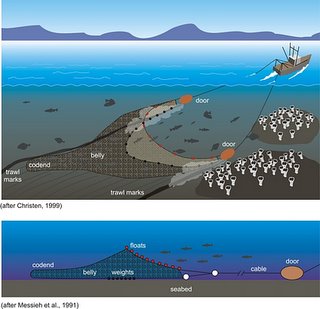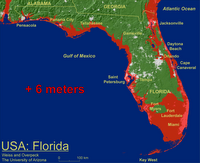 Surrounded by billowing smoke and flaming timbers, George Bush has finally admitted the house is on fire.
Surrounded by billowing smoke and flaming timbers, George Bush has finally admitted the house is on fire. “America is addicted to oil”, Bush told the world in his State of the Union address this week. While this might seem a bold statement coming from the most fossil-fuel-friendly president in history, it is hardy news to the rest of us.
The US uses one quarter of the world’s oil – an incredible 20 million barrels a day, or enough to fill the Toronto Skydome twice.
And like any addiction, that insatiable oil habit has some nasty consequences.
Last week, an international study revealed that pollution from burning fossil fuels is contributing to ballooning childhood asthma rates throughout North America. One in five Canadian boys between the ages of 8 and 11 are afflicted with this terrible condition. Worldwide asthma rates are now climbing by 50% each decade.
Bush also raised the thorny issue of America’s dependence on oil from politically "unstable" countries in the Middle East. Perhaps he is alluding to the over 2,200 American soldiers that have been so far died in Iraq, not to mention about 30,000 Iraqi civilians – the US government is not keeping count. The monetary cost of this oil-driven military adventure is $237 billion and counting.
Here at home many of civil liberties are being sacrificed on the altar of the so-called “war on terror”. This nebulous conflict has sprouted directly from dependence on foreign oil and is eroding many of the constitutional protections that define free and open societies. A recent case in point was the recent domestic spying scandal in the US that even many Republican senators are calling illegal.
And then there is the small matter of the fate of the planet. Aside from a well-known cabal of pseudo-scientists shilling on behalf of Big Oil, virtually the entire scientific community is united in the knowledge that climate change is real, is happening now and is very dangerous.
Almost every week comes another disturbing study showing that our oil addiction is putting the life support systems of our planet at risk. This week’s installment came from British government researchers who found that the Greenland ice sheet
 is very likely going to entirely melt, raising global sea levels by seven metres – enough to obliterate such well-known landmarks as Florida and Bangladesh.
is very likely going to entirely melt, raising global sea levels by seven metres – enough to obliterate such well-known landmarks as Florida and Bangladesh. While this massive melt may take up to 1,000 years, scientists made it clear that the time to act is now. The authors warned a delay in reducing greenhouse gas emissions, even in the next five years "could be significant".
Also released this week was a chilling sequel by scientific icon Dr. James Lovelock, of Gaia hypothesis fame, called “The Revenge of Gaia”. His disturbing message: global climate change is already too far-gone, and civilization is very likely doomed by the end of this century.
He believes that the US, China and India will not curb their oil addiction soon enough to avoid the Earth’s climate reaching an irreversible tipping point in the next few years..
Dr. Lovelock believes that runaway climate change will leave the living organism of our planet with a “morbid fever” that may last as long as 100,000 years, and leave humans dying by the “billions” by the end of this century.
Dr, Lovelock ‘s logic is both horrifying and compelling. I must say it is difficult to imagine a plausible scenario where we collectively choose to leave remaining oil in the ground. Given our past and present behavior, we seem to know already how much oil we will burn, and when we will burn it: all of it, and as fast as possible.
That said, humans are curious creatures. Long before civilization, our ancestors dispersed from the tropics and thrived in every ecosystem on the planet. We may be the most adaptable species that has ever evolved. That remarkable adaptability is something we urgently need to beat our oil addiction -not just for our own survival, but for every species on the planet as well.
Moving quickly to an oil free world will take courage, vision and leadership. George Bush’s record thus far on dealing with climate change is nothing short of disgraceful. It is noteworthy that he did not mention climate change once in his State of the Union address.
That said, the first step in dealing with an addiction is admitting you have a problem. His admission this week regarding our oil addiction was small progress, but progress nonetheless.
Now that we know the house is on fire, perhaps we should focus on putting it out...
Mitchell Anderson is a freelance writer based in Vancouver. This piece ran nowhere.











































